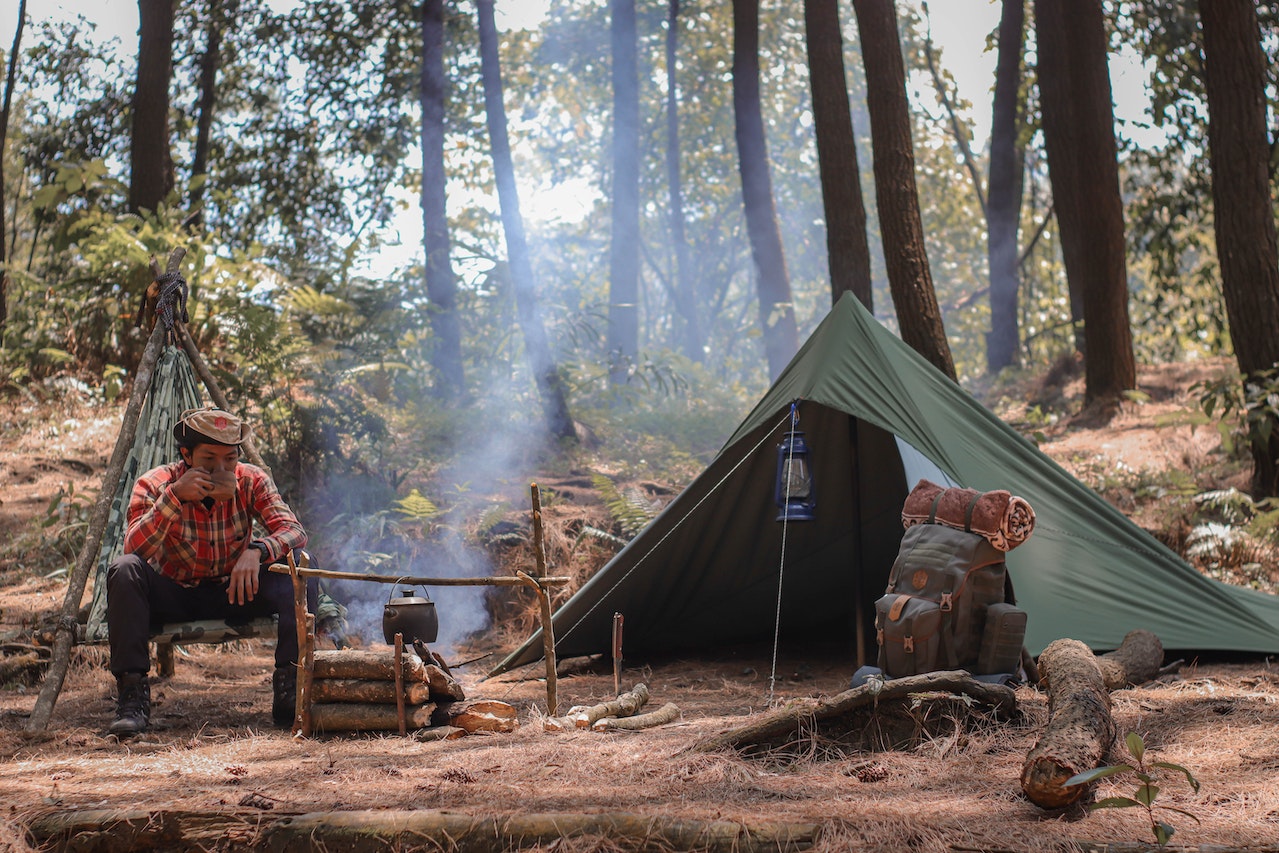How To Minimize Your Carbon Footprint When Outdoor Grilling?
Even our favorite hobby, cooking outside, should be green in this day and age. Are you ready to turn up the heat while staying green?
Find out how cooking outside affects the earth. We will talk about making your own charcoal grills, using fuel that is good for the environment, and cooking with low emissions.
Waste management, green cooking, plant-based food, and outdoor feasts that are good for the environment will also be talked about.
The Carbon Impact Of Cooking Outside
Outdoor cooking is a treat; this pastime has many faces, from open-fire roasting to modern electric grills. Among these, grilling stands out as a favorite for many. But how green is our grilling?
You love that charcoal-grilled taste? Me too! But charcoal releases a lot of CO2. It’s heating up our planet. Gas grills, using propane or natural gas, are cleaner. They emit less carbon. But, preparing these gases isn’t planet-friendly either.
Wood fires are age-old! Wood is renewable, but burning it releases CO2 and pollutants.
Here’s the grill-down:
- Charcoal means cutting trees. It harms wildlife habitats and warms our planet.
- Gas grills are cleaner but have hidden costs. They can disrupt ecosystems.
- Wood is a bit tricky compared to other fuels. Cut responsibly, burn efficiently, and it’s not too bad.
We concentrate on outdoor cooking, but indoor cooking safety and environmental effect are important too. Indoor grills need the same caution as outside grills to avoid accidents and pollutants. Gas stoves without flames are an ignored indoor cooking danger. Gas buildups is very harmful when it comes to indoor cooking.

Greener Methods For Cooking In The Great Outdoors
The DIY Charcoal Grill
If you want an eco-friendly BBQ, the Camping Harmony team has a very nice guide on how to build a DIY charcoal grill. It’s a game-changer for green cooking and your wallet.
Building your grill means making choices. You can use recycled metal or local stones. Every bit can reflect your eco-commitment. Plus, you’re not stuck with one-size-fits-all. Customize it! This means less waste and better fuel efficiency.
Crafting your grill is fun. It’s a deep dive into green living. You’ll learn the ins and outs of eco-cooking.
In short, a DIY grill is a win-win. It’s green, tailored, and a blast to make.

Choosing Renewable Fuel Sources
Cooking fuel choices matter for our planet’s health. Let’s zoom in on charcoal.
Charcoal Types: Hits and Misses
Lump charcoal is a gem. It’s pure, flavors food richly, and burns quickly. But it’s pricier and rarer.
About briquettes, they’re budget-friendly and consistent burners. But they sometimes pack unwanted fillers, messing with flavor and air.
Green Upside of Sustainable Charcoal
Opting for eco-friendly charcoal does wonders. It’s from well-guarded forests, ensuring no deforestation or wildlife harm. Plus, it’s cleaner, meaning less pollution. So, while you relish your BBQ, you’re also giving Earth a hand.
In a nutshell, while cost and availability count, I’d nudge you towards sustainable charcoal. It’s a green thumb up for both your BBQ and the planet.

Fresh Ingredients
As we practice green outdoor cooking, fresh ingredients are essential. Any successful BBQ requires proper storage, particularly for perishables. This is where having a reliable cooler comes into play. BestOuts has a complete list of the best soft coolers for outdoor use that are sturdy, portable, and effective.
Efficient Cooking Techniques to Lower Emissions
Let’s keep it green when you’re grilling outdoors. Preheating your grill is a game-changer. It kills bacteria and ensures even cooking. So, you’ll burn less charcoal and emit less carbon.
Steady heat is your friend. When the wild temperature swings, they’ll burn extra fuel. Grab a grill thermometer. It’ll help you keep things steady and save fuel.
Now, how you cook matters. Direct grilling is fast and perfect for thin meats and veggies. But watch out for flare-ups; they raise emissions. Indirect grilling is slower, more controlled, and fuel-efficient. It’s a champ for thick meat cuts.
In short, smart grilling cuts carbon. Every tweak you make pushes us towards a greener BBQ.
Taking Care of Trash
Green outdoor cooking isn’t just about fuel; it’s about waste too. Let’s dive into reducing food waste and handling leftovers smartly
Tackling Food Waste
Food waste sneaks up, even outdoors. Plan your meals. Estimate food based on your guest count and appetite. Remember, it’s easier to whip up more than deal with heaps of leftovers.
Opt for versatile ingredients. How about the leftovers? Transform them into a new dish. And always store food right. Grab reusable containers and coolers to keep things fresh.
Smart Leftover Handling
After a hearty BBQ, it’s leftover time. Think recycling and composting. Sort your waste. Clean and recycle items like foil and glass. Organic scraps are compost gold. This reduces landfill waste and boosts your garden’s soil health.
You’ve probably got grill ashes. Don’t toss them! Wood ash enriches soil, balancing its pH and feeding your plants.

Extra Steps for Green Outdoor Cooking
Aside from the ways that have to do with how you cook, there are also ways that have to do with how you choose your food and energy. Let’s find out:
Solar Power Energy
If you want to go greener with outdoor cooking, think solar-powered gear. It uses the sun to power itself, which cuts down on fossil fuel use and pollution. Solar ovens and grills change the way people cook. They can be taken anywhere and work as long as the sun is out.
Local and Organic Foods
Next, think local and organic. Local foods cut transport emissions and often hail from eco-friendly farms. Organic options ditch harmful chemicals, keeping our soil and water clean.
Plus, they’re a treat for our health. Fresh vegetables from your area are cooking on your do-it-yourself grill. Next BBQ, let’s pick foods that love our planet as much as we do.
Plant-Powered BBQs
Let’s chat about plant-based BBQs. They’re not just healthy; they’re planet-friendly. Plants grow with less water, energy, and land, slashing greenhouse gases. Ready to try? Here’s how. Marinades are your best friend. Veggies and tofu soak up flavors just like meat. Experiment with sauces for that perfect taste.
A hot grill and the right timing can turn humble veggies into stars. Dive into new ingredients. Mushrooms, eggplant, tofu—the options are endless. By grilling plant-based, you’re treating your taste buds and the earth.

Conclusion
Loving BBQs and the planet isn’t a contradiction. Your choices ripple out. Opting for a DIY grill or green fuel makes a dent.
Cooking style counts. Consistent heat and smart methods reduce emissions. And let’s not waste food; recycle leftovers.
Ever tried solar gear or local food? They’re eco-game changers. And tossing plant-based treats on the grill? That’s a carbon cutter. Looking forward, green BBQs have a sunny future. With tech’s help, we’ll feast outdoors without Earth’s expense.
Every choice matters. You can savor BBQs and still hug trees. It’s a win-win!








